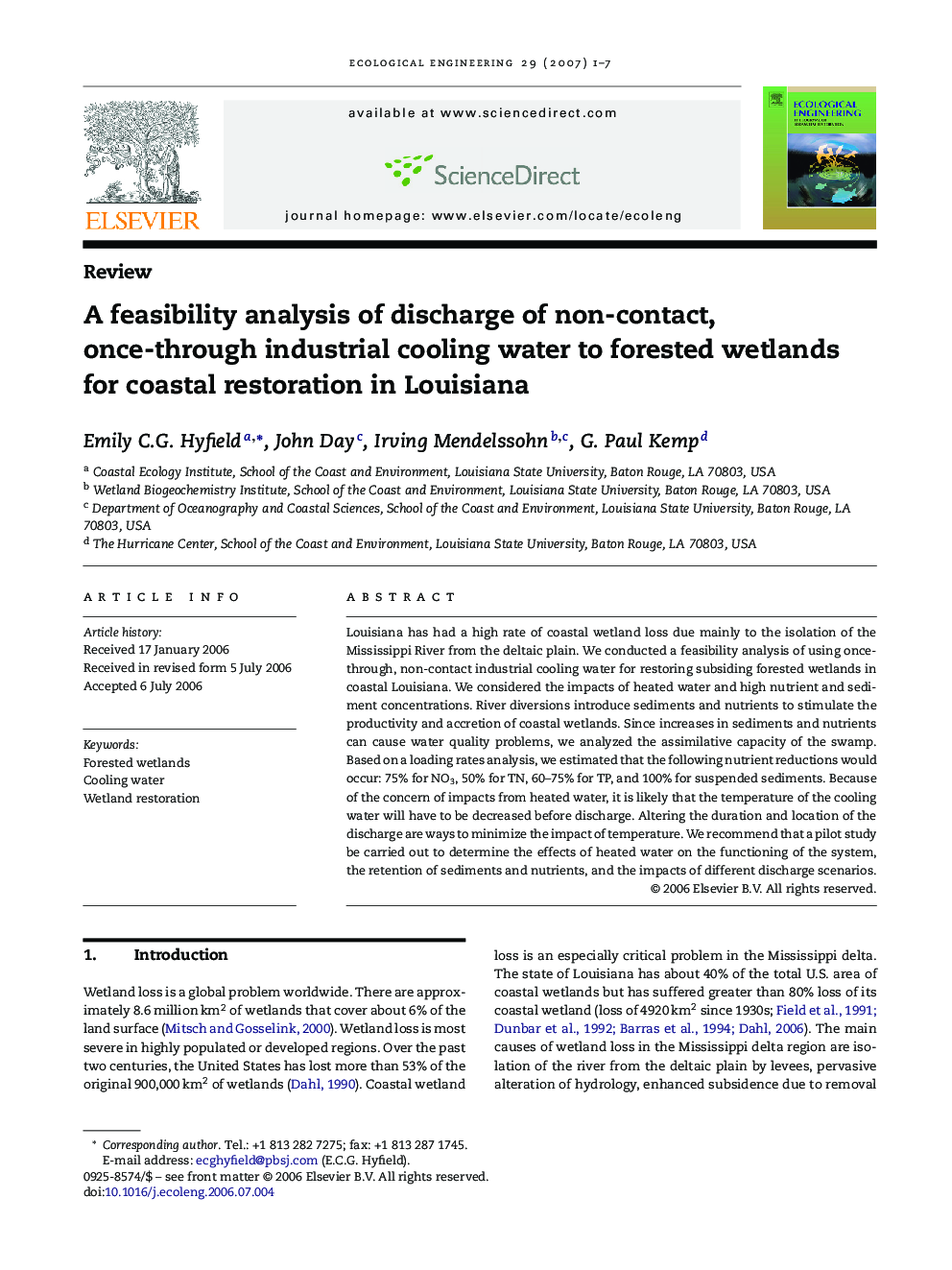| Article ID | Journal | Published Year | Pages | File Type |
|---|---|---|---|---|
| 4391184 | Ecological Engineering | 2007 | 7 Pages |
Louisiana has had a high rate of coastal wetland loss due mainly to the isolation of the Mississippi River from the deltaic plain. We conducted a feasibility analysis of using once-through, non-contact industrial cooling water for restoring subsiding forested wetlands in coastal Louisiana. We considered the impacts of heated water and high nutrient and sediment concentrations. River diversions introduce sediments and nutrients to stimulate the productivity and accretion of coastal wetlands. Since increases in sediments and nutrients can cause water quality problems, we analyzed the assimilative capacity of the swamp. Based on a loading rates analysis, we estimated that the following nutrient reductions would occur: 75% for NO3, 50% for TN, 60–75% for TP, and 100% for suspended sediments. Because of the concern of impacts from heated water, it is likely that the temperature of the cooling water will have to be decreased before discharge. Altering the duration and location of the discharge are ways to minimize the impact of temperature. We recommend that a pilot study be carried out to determine the effects of heated water on the functioning of the system, the retention of sediments and nutrients, and the impacts of different discharge scenarios.
